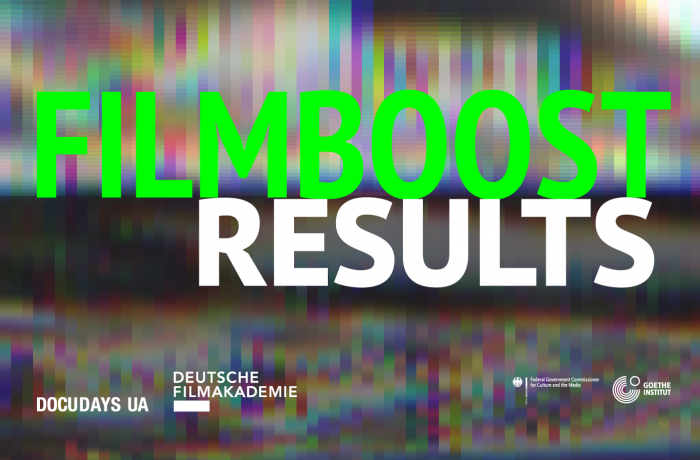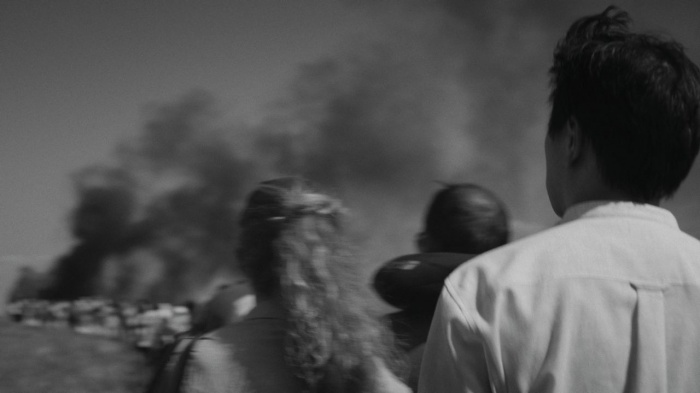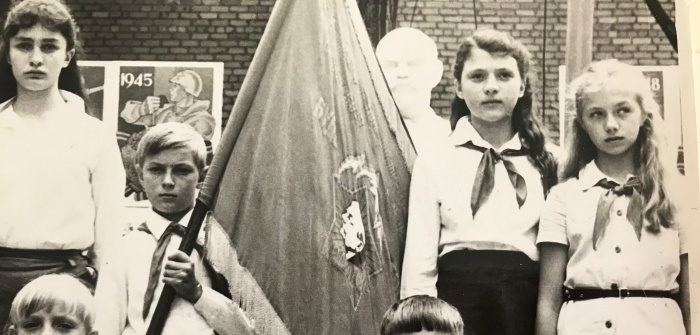
This summer, we launched the FILMBOOST scholarship programme with Deutsche Filmakademie e.V. within the DOCU/HELP support initiative for cinematographers. The aim of the scholarship programme was to help create auteur projects in various genres and formats that reflect on the events of the war and its consequences, as well as on the Ukrainian reality at the political, social, economic, legal, and personal levels.
An independent international jury processed more than 400 applications. Each of the 60 finalists received €5,000. Moreover, our Irish partners, Irish Filmmakers Supporting Filmmakers, with the support of Element Pictures and the Screen Directors Guild of Ireland, gave an additional award to the emerging filmmaker and provided the services of the Irish post-production company Outer Limits to the short documentary project 81 by Li Biletska.
Anne Leppin, Co-Managing Director and Initiator,Deutsche Filmakademie e.V.:
Our programme is slowly coming to an end. We are insanely proud that we have managed to provide unbureaucratic help in such a short time. I am very impressed by the strength of the filmmakers in Ukraine. It's of great significance to see how essential culture is in times of war. It was important for us to be in close contact with the 60 scholarship holders in the past few months and to give them the feeling that they were not alone, and that there are colleagues in Germany who do their best to support them. We hope to have contributed something to the fact that projects could continue to be produced and important expenses could be made. And we would like nothing more than for it to continue to be possible.
Through all these months filmmakers continued working. Some of them were able to finalize their project as well as develop their stories and start looking for partners. The information about all the scholarship holders and their projects can be found here.
26 documentary projects were supported by the scholarship program. Some of them were started right after 24 February.

A still from The Days I Would Like to Forget
Alina Gorlova, director and producer:
What does it mean to be a documentary filmmaker in Ukraine right now? Of course, it's a big challenge because of safety. However, this war raises the issue of documentary filmmakers' current responsibility. I am sure we have to rethink the place of artists in the world and the role of art in politics. The Days I Would Like to Forget is a project I have been working on now together with my colleagues since 24 February. In the upcoming film, the crew and I observe how the war affects people, animals, and whole physical spaces. We explore how the war affects our future, present, and past.
The programme did not have any restrictions regarding the stage at which the applying projects had to be. Everybody had equal chances.

A still from Iron Butterflies
Andrii Kotliar, producer:
For me personally, it was an opportunity to focus on finishing the film Iron Butterflies. Iron Butterflies is a hybrid documentary about horrible Russian war crimes they did long before the full-scale invasion in 2022. It’s about the downing of the passenger airplane MH17 in 2014. We prepared an updated version of the international trailer and developed a promo strategy, prepared visual materials, etc.
A couple of days ago the team announced great news. The world premiere of the film will be at the Sundance Film Festival. The film was also selected for the Panorama section at Berlinale.

A still from A Bit of a Stranger
Svitlana Lishchynska, director:
Now I am in the process of shooting my upcoming film. It raises the issue of the identity crisis of people who have been living for a long time under the influence of Soviet and Russian propaganda which aimed to destroy any identity. I was born in Mariupol in the USSR, and I was brought up with the communist agenda. When the Soviet Union collapsed, everything that we were taught about this world turned out to be wrong, and I had to live for a long time without understanding who I was and what the real values were. There are four generations of women in my film. Generation after generation, our family was becoming more and more Russified. My daughter was even ashamed to speak Ukrainian. This is a typical situation for many residents of Eastern Ukraine whom Russian soldiers have come to “liberate” by burning their houses, spreading fear, and killing thousands of people. This is a film about people without roots, about what nationality and patriotism are for them, and about whether they are important enough to die for them. And finally, what the meaning of life is when death and hatred are around.
Ksenia Kravtsova, filmmaker:
My story is about a great artist, Oleksandr Glyadyelov. His photographs always tell stories of people: of their feelings and emotions, their state of mind and mood. They are full of sympathy, compassion, and sometimes humor. My creative team and I are in the process of editing. In cooperation with Oleksandr, we are selecting the photographs and footage that we will include in this film. Through his photos, Glyadelov talks to us about homeless children after the collapse of the Soviet Union, about people who have suffered from wars, about the military, and, of course, about today's terrible war. This story will be about all of us, about Ukrainians.
Along with documentary projects, we accepted applications from feature film projects. 16 feature films were selected among them.
Denis Ivanov, producer:
The first draft of the script was developed by director Oleg Sencov before 2014. It was important for us to redo the script and rewrite its third part so that it takes place during the war instead of a train wreck, like in the previous version. The programme has helped us a lot with organizing ourselves to finish the new draft of the script and be ready for the financial stage before the end of the year.
To hear more about all the projects, follow this link.
FILMBOOST is created by NGO Docudays and Deutsche Filmakademie e.V. with the support of the Federal Government Commissioner for Culture and the Media and Goethe Institut.